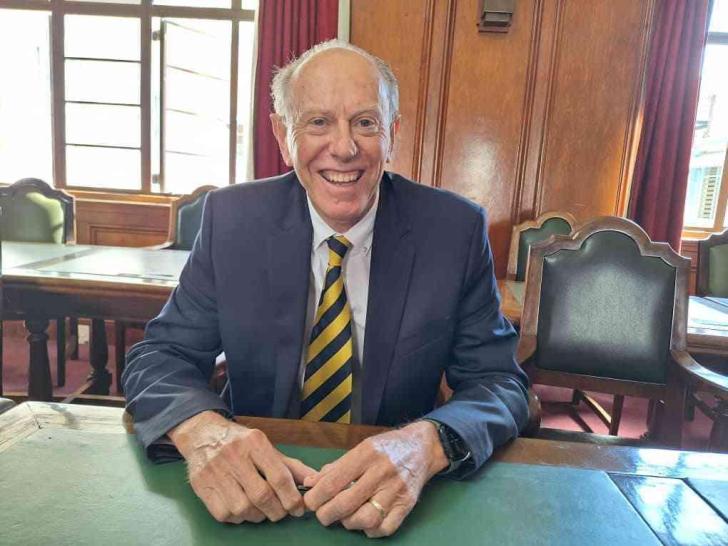News / National
Bulawayo has no control over Nyamandlovu aquifer
06 Feb 2025 at 17:24hrs |
0 Views

Bulawayo City Council (BCC) has acknowledged that the Nyamandlovu aquifer is operating below its capacity, largely due to non-functional boreholes, further exacerbating the city's ongoing water crisis.
Mayor David Coltart confirmed to Southern Eye that the local authority has been urging the Zimbabwe National Water Authority (ZINWA) to address the issues at the aquifer, including resuscitating the boreholes and improving security. However, he explained that the local council has limited control over the aquifer, as it falls outside the city's jurisdiction and infrastructure ownership.
"We have been asking ZINWA to resuscitate the Nyamandlovu boreholes and upgrade security, but it is still operating way below its design capacity. Unfortunately, because we do not own the infrastructure, unlike our dams, we have no control over how it operates," Coltart said.
Despite these efforts, Coltart pointed out that the aquifer alone cannot meet the city's water needs. While there have been consultations with experts on ways to increase the aquifer's capacity, the mayor stressed that the council's hands are tied due to its lack of control over the infrastructure and the aquifer's location outside city boundaries.
Coltart emphasized that the Nyamandlovu aquifer, though considered a potential solution, faces significant environmental concerns. One of the key issues is the uncertainty surrounding the aquifer's ability to replenish itself, an area that requires further scientific study before more water can be extracted.
"Even if this is addressed, there are major environmental concerns linked to expanding the capacity of the Nyamandlovu aquifer. There is no clear science about how it replenishes, and this is a critical study which needs to be done prior to us drawing vast quantities of water from the aquifer," the mayor explained.
He also stated that it is unrealistic to expect the Nyamandlovu aquifer to serve as a long-term, environmentally sustainable solution to the city's water needs.
While the aquifer is not seen as a viable long-term solution, the Gwayi-Shangani Dam project remains a key hope for addressing Bulawayo's water shortage. Initially proposed in 1912, the project has long been touted as a lasting solution to the city's water issues. However, multiple missed deadlines have left many residents concerned, despite President Emmerson Mnangagwa's pledge to complete the project before the 2023 elections.
Mayor David Coltart confirmed to Southern Eye that the local authority has been urging the Zimbabwe National Water Authority (ZINWA) to address the issues at the aquifer, including resuscitating the boreholes and improving security. However, he explained that the local council has limited control over the aquifer, as it falls outside the city's jurisdiction and infrastructure ownership.
"We have been asking ZINWA to resuscitate the Nyamandlovu boreholes and upgrade security, but it is still operating way below its design capacity. Unfortunately, because we do not own the infrastructure, unlike our dams, we have no control over how it operates," Coltart said.
Despite these efforts, Coltart pointed out that the aquifer alone cannot meet the city's water needs. While there have been consultations with experts on ways to increase the aquifer's capacity, the mayor stressed that the council's hands are tied due to its lack of control over the infrastructure and the aquifer's location outside city boundaries.
Coltart emphasized that the Nyamandlovu aquifer, though considered a potential solution, faces significant environmental concerns. One of the key issues is the uncertainty surrounding the aquifer's ability to replenish itself, an area that requires further scientific study before more water can be extracted.
"Even if this is addressed, there are major environmental concerns linked to expanding the capacity of the Nyamandlovu aquifer. There is no clear science about how it replenishes, and this is a critical study which needs to be done prior to us drawing vast quantities of water from the aquifer," the mayor explained.
He also stated that it is unrealistic to expect the Nyamandlovu aquifer to serve as a long-term, environmentally sustainable solution to the city's water needs.
While the aquifer is not seen as a viable long-term solution, the Gwayi-Shangani Dam project remains a key hope for addressing Bulawayo's water shortage. Initially proposed in 1912, the project has long been touted as a lasting solution to the city's water issues. However, multiple missed deadlines have left many residents concerned, despite President Emmerson Mnangagwa's pledge to complete the project before the 2023 elections.
Source - southern eye
Join the discussion
Loading comments…





























